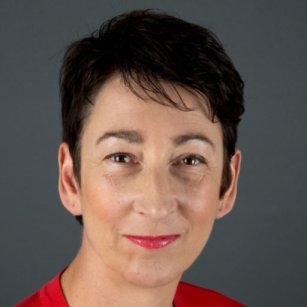Petra Verdonk is an occupational and health psychologist. When she graduated on the theme ‘high occupational disability risk of women’, women and work absenteeism were high on the political agenda. At the time, Verdonk not only learned a lot about gender inequality in research and her involvement with various women's organizations, but she also personally recognized gender differences in the workplace. Verdonk then earned her doctorate at Radboud University Nijmegen at the department of General Practice on the topic of ‘gender differences in health and illness in medical education’. She has now been with the VU Amsterdam for over 10 years, conducting research in the area of gender and diversity in health and healthcare. She is also a pioneer in developing education from a diversity perspective.
Diversity & Intersectionality
Diversity is the fact that people are different from each other. People's social identities are of value in a group in context. Social identities include gender, social and economic class, age, ethnicity, stage of life, religion, nationality and sexual orientation. Intersectional thinking is the understanding that individuals have multiple social identities that are simultaneously present and "color" each other. Petra Verdonk: "Intersectionality is the variety of aspects of diversity and social identities and how they are related. That can be a sum, or an interaction. But how does it all relate to each other? And how is that related to health?" In qualitative research, an attempt is made to make invisible groups visible. An intersectional analysis explores the interaction of aspects of identity with the goal of better understanding how identity plays a role in social inequality. For example, in health and healthcare. Where are these invisible groups situated in society? And how does that play out, for example, in a pandemic? Or in elderly care? Which groups are marginalized? And what does this mean for their health?

Male caregivers
Integrating intersectionality into research is one of Petra Verdonk's areas of expertise. In the doctoral research of Verdonk's PhD student Saskia Duijs on older employees in elderly care, one such invisible group is studied: male caregivers. The gender ratio is skewed in elderly care: there are many women, and very few men, especially in the lower pay scales. Duijs examined, from a masculinities perspective, the dynamics in this feminine sector. How do men position themselves and how do they view their work as caregiver? Verdonk explains the problem: "In interviews with caregivers in elderly care, men say they enter the organization with a lot of self-confidence even if they have no formal qualifications. In addition, they get good career opportunities. They see advantages to their masculinity in the work, for example, because they are physically strong or would not get burned out easily. Ultimately, the work turns out to be physically demanding and they experience a feminine culture that contributes to them leaving as well."
An interesting finding regarding intersectionality is that the men of color interviewed seem to have a different position than the white men. This means that a different dynamic therefore occurs. They say they have to fight hard for career opportunities or a higher pay scale, for example. Verdonk: "These invisible intersections we do not yet have a clear enough picture of. What is happening there? What is needed so that men will also choose elderly care? Just hiring more men is not going to work: the entire ship needs to be turned."
Peer support for refugee women
Another example in relation to intersectionality is Zahra Khazai's research on peer support groups for women from refugee backgrounds. In these groups, women who have experienced sexual and gender-based violence can discuss this with other victims. Thus, psychological consequences for these women, such as PTSD, depression and anxiety, can be discussed. In collaboration with Dokters van de Wereld, Khazai and Verdonk have developed manuals for such peer support groups, among other things. A pilot with men's groups is also being launched now. The purpose of those peer support groups is to help discuss sensitive issues. "We are going to try out how that works out with men!" says Petra Verdonk.
Education
Verdonk also contributes her bit to creating awareness of diversity in education. By now, the Global Health minor is popular, and diversity is also covered extensively in the basic health sciences and medicine curriculum. For example, Ethics & Law practicums discuss a range of ethical dilemmas, such as abortion law, care for the undocumented, partner violence and gender diversity. Verdonk explains, "Through education, you can create awareness about inequality, and that you can't just pour out all treatments the same way on everyone. People will not react in the same way. There is also a practicum addressing first impressions in relation to diversity. How can stereotypical thinking and actions of the healthcare professional work out? And how can you become aware of marginalized groups in healthcare?
Petra Verdonk is positive about the future of healthcare and its students. Diversity has long been absent from the agenda in healthcare, research and education, but among students it is more alive than ever. "I am most proud of the younger generation. I notice that this generation is very effective on diversity and I see many things happening." Verdonk adds, "At the same time, the younger generation of doctors is stepping into existing, unruly, systems. It takes activism to change that. But I find them more willing than ever. That's a fantastic development."
APH researcher Petra Verdonk is associate professor of Ethics, Law and Humanities at VU University Amsterdam and a member of the program council of the APH Personalized Medicine program.
Resource used: Secondary intersectional analysis in qualitative health care research, practical guide, Mirjam Stuij, Maaike Muntinga, Minne Bakker, Elena Bendien, Petra Verdonk.

